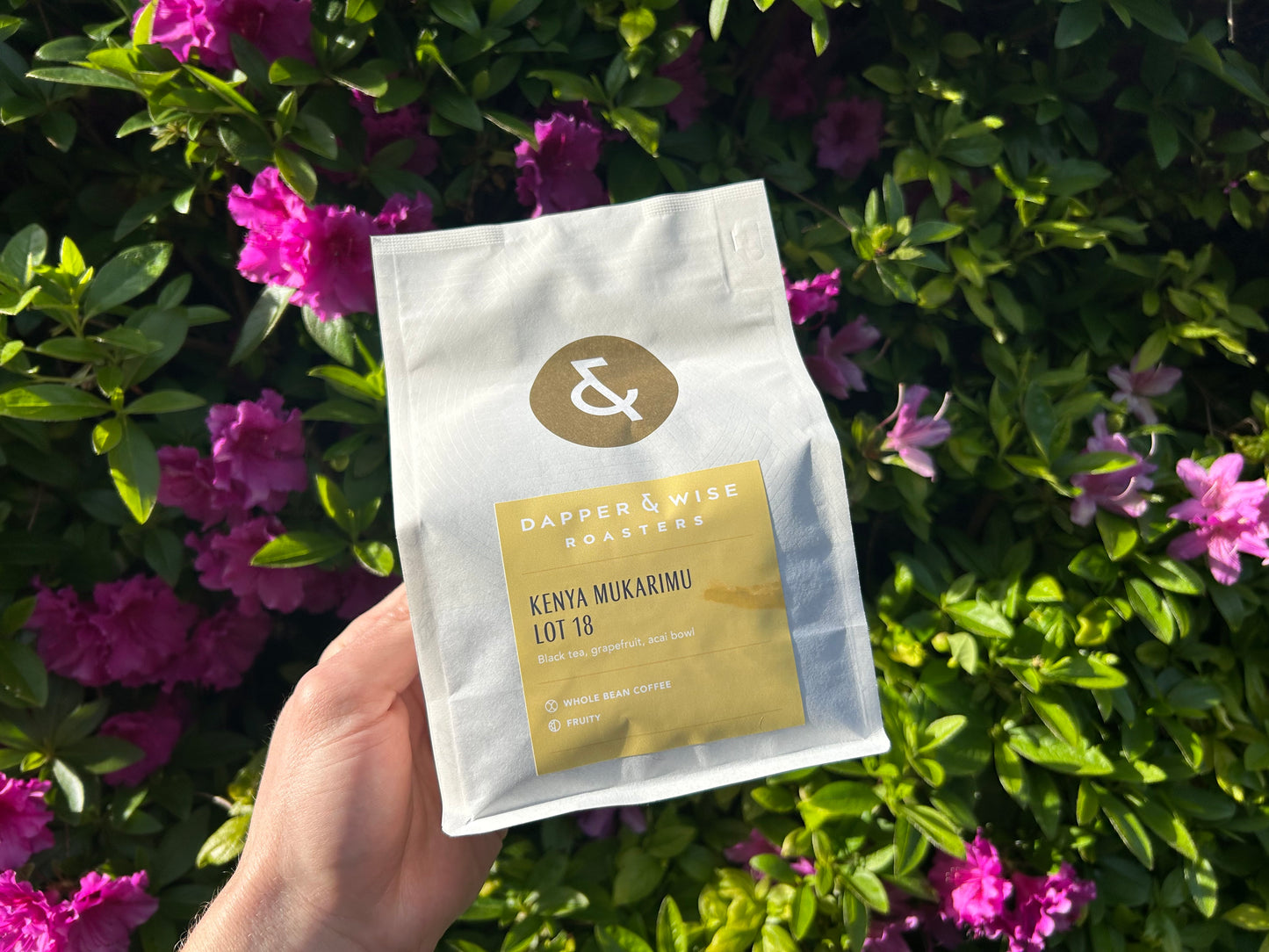
We just launched our next Kenyan coffee, Mukarimu Lot 18, and we couldn't be more excited about it.
What do you say about a coffee that has it all? Not only is this coffee delicious, with a cup that has all the things we hope for when sipping a Kenyan coffee - sparkly acidity, complex and unique fruit notes, and somehow achieving a previously unknown level of balance - but it was organically farmed, and maybe our favorite part, it challenges the status quo to how coffee moves from farm to mug.
💸 Financing!
While this might seem like a boring, unattractive aspect to the coffee industry, in many supply chains, it’s the hidden piece that makes it possible to move coffee from farms to anywhere else, and it’s what Jamii, the importer bringing us this coffee, is rethinking in their supply chains.
Many importers take out loans, which provide them with a lump sum of money that they can then use to pay for the coffee that they will then hold onto until they sell this coffee to roasters, like Dapper & Wise. As importers sell coffee, they bring in money, which can then be used to pay back their loan…along with the interest that comes with it. This (usually high) interest is the tough part, making it hard for some importers to maintain the financial health of their operations. As Jamii tells us, from their perspective, the interest paid for financing puts downward pressure on the amount of money that they could otherwise pay farmers for coffee.
You still with me? For the two of you who are still reading along, here’s where Jamii’s “Coffee Belongs to the Farmer” system comes in. It’s pretty simple: no financing. Instead of Jamii paying the farmer, in this case, Charles Mutwiri, upfront for his coffee, a process that would require Jamii to obtain financing, Charles Mutwiri remains the owner of his coffee until Jamii sells it to roasters, and after each sale, Jamii pays Charles directly. Without having to dedicate a percentage of income to paying off interest, Jamii has more available funds to pay Charles a higher price for his coffee. So, in this case, no financing = more money in Charles’ pocket.
And since nothing is simple in this industry (does any of this industry even make sense?), it’s important to note that a consequence to this system is that Charles ends up receiving payment for his coffee significantly later than he would have received payment were Jamii to have utilized financing to pay Charles up front. The distribution of risk is also altered: instead of the importer assuming the risk of quality degradation as the coffee sits in warehouses waiting to be sold to roasters, this risk is now shared with Charles, who, as a coffee farmer, already carries a disproportionate amount of risk (uncertain weather patterns and volatile coffee prices to name a couple). Trust, and transparent agreements, like the relationship between Jamii and Charles, are the key. What works for one farmer and importer may not work for another!
To be clear: no shade to financial institutions and loans. Like we said, without financing, moving coffee around the world might not be possible in many cases. This just gets us thinking - what are some other ways that finance can be utilized so that more money gets into the hands of smallholder producers? A fun thing to think through over a tasty cup of Kenyan coffee, maybe??
Here’s some more info on this coffee from Jamii Coffee’s website.
